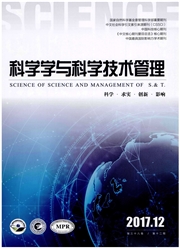

 中文摘要:
中文摘要:
国际化过程动态特征长期被学者所忽视。事实上,即使在国际化程度相同的情况下,国际化进程特征差异也会直接影响组织绩效。基于组织学习和时间压缩不经济性理论,利用中国上市公司数据分析了国际化速度与绩效之间的关系,并探讨了企业内部资源和外部国际化压力的调节作用以及知识资本的二次调节作用。研究发现:第一,由于时间压缩不经济性的存在,中国企业国际化速度过快会导致绩效受损;第二,企业内部资源充足可以遏制国际化速度过高对绩效的损害;第三,企业外部国际化压力增加时,作为后来者的中国企业应该更加谨慎的进行国际化扩张;第四,企业知识资本存量增加,会显著增强内部资源冗余的正向调节作用,削弱外部国际化压力的负向调作用。
 英文摘要:
英文摘要:
Based on organizational learning theory, especially the theory of time compression diseconomies in foreign expansion, this paper analyzed the relationship between FDI speed and performance of Chinese enterprises, explored the moderating effect of internal slack resources and external international competitive pressures, and the secondary moderating effect of knowledge capital. Based on the data of Chinese listed company, the main results of empirical analysis include: Firstly, international speed would negatively affect the international performance,that is 'haste makes waste'; Secondly, sufficient internal slack resource could negatively moderate the impairs of international speed to the performance of internationalization; Thirdly, external international pressures could enhance this impairs; And at last, the knowledge capital would significantly enhance the positive moderating effect of internal slackresource, and weaken the negative moderating effect of external international pressures.
 同期刊论文项目
同期刊论文项目
 同项目期刊论文
同项目期刊论文
 期刊信息
期刊信息
